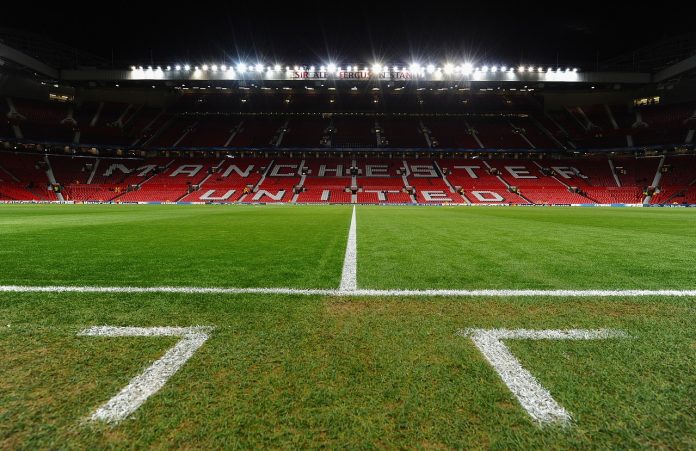In 1956, Manchester United made history as the first English club to participate in a European competition, specifically the European Cup. Since then, the club has competed in all competitions organised by UEFA.
The European Cup, now known as the UEFA Champions League, was Manchester United’s most successful competition. They won the European Cup thrice, including their first title in 1968, making them the first English club to win the competition. However, Sir Jim Ratcliffe’s investment in Manchester United seriously threatens the club’s future for the 2024-25 season.
UEFA’s Multi-Club Ownership Rules
UEFA’s multi-club ownership rules are complex, and Sir Jim Ratcliffe’s ownership of OGC Nice could see Manchester United banned from European competitions. Regulations prohibit investors from owning stakes in multiple clubs in the same country but allow ownership in different leagues. In this case, Ratcliffe-led Ineos Group owns OGC Nice and will acquire a 25% stake in Manchester United.
This raises concerns about compliance with these rules and seriously threatens Manchester United’s European aspirations for the 2024-25 season. If both Manchester United and Nice advance to the Champions League, the top teams in the league can participate in the competition.
On the other hand, the second team will be kicked out of Europe. The only way both teams can qualify for European competition next season is to qualify for the Champions League automatically and the other to qualify directly for the Europa League. However, this leaves the future of the Red Devils uncertain due to their recent positions in each competition.
Ineos Group’s Stake and Potential Impact
Ineos Group’s anticipated acquisition of a 25% stake raises profound questions about Manchester United’s future in Europe. UEFA rules allow investors to own stakes in various competitions, but the impact on club performance and fan sentiment is unclear.
Significant uncertainty exists regarding the minority shareholding structure of the Ineos Group and its potential impact on Manchester United’s football operations. Ineos’ takeover of the quarter could ease the concerns of fans unhappy with the Glazers’ current ownership.
Potential Scenarios and Far-Reaching Implications
It is essential to understand that Manchester United will suffer severe consequences if they finish the season lower than Nice. The club could be banned from European competitions for the 2024-25 season, significantly affecting its finances, player recruitment, and more.
The ban’s ramifications impact not only the club but also their legions of fans across the globe. Fans will be heartbroken should the team not be playing in European competitions in future years, and there will also be fewer opportunities for betting on the team with the best betting sites, as listed in Crypto News. Although they haven’t been performing too well in this year’s Champions League (they’re currently outsiders at around 66/1), the club’s 1.1 billion fans worldwide have been passionately following their performance.
This illustrates how the gaming industry, sports, and fan engagement are interconnected, and how far-reaching the consequences of the events could be.
Financial Impact
If Manchester United are banned from European competitions, it could have significant consequences for the club. The club’s history of playing in European competitions has fans expecting regular appearances in these football tournaments.
The loss of revenue from European competitions could seriously affect Manchester United’s finances. These tournaments are an important source of income, and the lack of this income can undermine the club’s financial stability.
Player Recruitment and Retention
The potential ban could also affect the club’s ability to attract top talent. Many players are attracted to clubs participating in European competitions. Losing this opportunity will make it difficult for Manchester United to attract top players in the future. If banned, the Red Devils could find it more difficult to attract elite players and make them more attractive to top rivals.
Brand Image and Global Appeal
Manchester United’s brand image and global appeal, built on European successes, could suffer. The disappointment among the global fanbase, accustomed to the Red Devils’ European prowess, may affect merchandise sales and overall engagement, such as betting from international fans.
Long-Term Consequences
The possibility of being kicked out of European competition raises concerns about Manchester United’s competitive position and overall trajectory. Back-to-back seasons without exposure to the European stage can lead to a drop in competitiveness and affect a club’s ability to secure top management and player talent. The Red Devils have a worldwide fan base, and a loss in European competitions could reduce the club’s popularity and influence globally.
Glimmer of Hope
According to a recent BBC article, Manchester United could find a possble solution through its ownership model to avoid the problems of multi-club ownership rules. It is unclear how the Ineos Group’s minority stake in Manchester United will be structured and whether the Glazers will acquire it.
But let’s say that Ineos Group controls a quarter of Manchester United’s football business. In that case, the Glazers could convince disgruntled fans to stay at United. Furthermore, the reorganised Champions League for the 2024/25 season could automatically guarantee England an additional place in the competition.
This could give Manchester United an extra chance in European competitions, even if they are below Nice in the league. As the story continues, the stakes rise for Manchester United.
As the football world watches, the fallout from Sir Jim Ratcliffe’s investment could alter the club’s fortunes and worry fans and stakeholders alike until a final verdict on the European stage.







